How to recognize the danger signs of dehydration (and tips for staying better hydrated)
Posted in General Health articles on April 29, 2011. Last modified on March 04, 2020. Read disclaimer.
We've all heard the rule of thumb, "you should drink 8 cups of water per day" but is this really the best advice? And what, if anything, can be the danger of not drinking enough water?
Depending air temperature, activity level, humidity and altitude, the average body loses about 10 cups (more than a half-gallon) of water daily. While normal functions such as sweating, breathing, urination and defecation are obvious; water loss can be even more dramatic during illness (due to diarrhea, vomiting and fever). Diabetics and people on certain medications (such as lithium or blood pressure medications) are at special danger for dehydration.
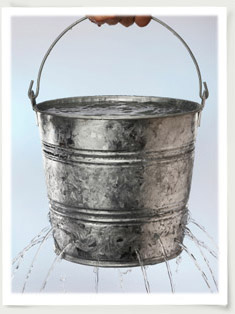
Why drinking enough water is so important
Water serves many life-supporting functions in our body -- it is necessary for digestion of food and elimination of waste, perspiration (the most important way we have of cooling our body), protecting organs and tissues, removes toxins from our body, delivering nutrients to cells and regulating blood circulation.
Unfortunately, our bodies are not efficient at stockpiling extra water reserves for later use. And to make matters worse, we tend to lose water much more quickly than we can absorb it. While extreme heat, humidity and activity can cause our bodies to lose as much as 2.5 quarts per hour, we can absorb only 1 quart per hour. So, it is important to drink plenty of water, other hydrating fluids (avoid carbonated, caffeinated, or heavily sweetened drinks which are actually dehydrating) and/or eat hydrating foods (which includes many fruits and vegetables - especially lettuce and melons) throughout the day.
If you plan to be active in hot weather or working out heavily, it is important to not only sip fluids regularly during this period but you should also drink plenty of fluids an hour or so beforehand as well as a half hour or so afterwards.
+ Free Shipping & Returns on Eligible Items.
(*Amazon's Top 100 list updated hourly.)
How can we tell if we are drinking enough water daily? What are the signs of dehydration?
You may assume that thirst would be a good indicator that it's time to drink water. It's not! As you age, you may lose some of your sense of thirst. And even in the perfectly healthy individuals, the "thirst" mechanism doesn't normally kick in until our body is already 2% dehydrated. So, often, the first signs of dehydration may be:
• you're peeing less or urine is dark and smells bad
• feeling dizzy, light-headed or a headache
• skin becomes reddish or yellow colored
• mouth is dry, lips cracked
• eyes appear sunken or feel dry
• lack of energy or enthusiasm
• nausea
• muscle cramping
• anxiety or irritation
If ignored, the symptoms of severe dehydration may include little or no urine for 8 hours, gray or pale skin or lips, confusion, hallucination or aggression. Even seizures, vomiting, coma, heat stroke, brain damage and death are possible in extreme cases.
Persons who eat a high-fiber diet, are breastfeeding or are sick should drink even more water than normal.
Tips to help you stay hydrated
- Take frequent water breaks throughout the day, especially in hot weather or if you're not feeling well.
- Make plain water more enjoyable by adding a squeeze of citrus juice.
- Carry a water bottle with you and take a sip every time you pass a water fountain.
- Begin drinking water an hour or two before exercising or spending time in extreme heat or when exposed to heated or recirculated air. Then continue sipping water during this period and follow up by drinking water for a half hour or so afterwards.
- Increase your consumption of hydrating foods such as fruits, vegetables, smoothies, and freshly-squeezed juices.
- Limit your intake of carbonated, alcoholic, caffeinated or highly sweetened drinks.
- If you're not feeling well and have diarrhea or have been vomiting, you probably won't feel like drinking much but you're at a high risk for becoming dehydrated. Try drinking small amounts of water more frequently or sucking on popsicles.
- Take a break from strenuous activity that causes heavy sweating.
- Limit the time you're exposed to direct sun, extreme heat, wind and/or humidity.
- Wear cool, loose-fitting clothes and a hat to shield you from the sun.
- Do NOT take salt tablets.
For more information on the symptoms and prevention of dehydration, you may want to visit:
http://health.mo.gov/living/families/wic/wicfamilies/education/water.php
http://www.westover.afrc.af.mil/news/story.asp?id=123212355
http://www.nlm.nih.gov/medlineplus/ency/article/000982.htm http://www2.team.georgia.gov/portal/site/GeorgiaStatement/menuitem.202115a834a974fcb2755310da1010a

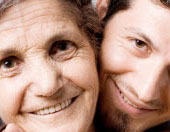 How happiness may improve health
How happiness may improve health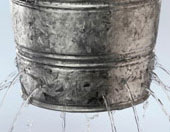 Main causes and symptoms of dehydration
Main causes and symptoms of dehydration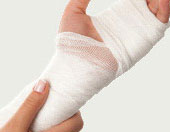 Preventing falls in the home
Preventing falls in the home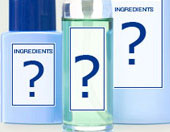 Common health risks in cosmetics
Common health risks in cosmetics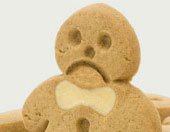 Avoiding stress and depression during the holidays
Avoiding stress and depression during the holidays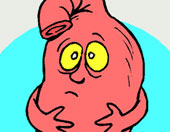 Common causes of children's stomach aches
Common causes of children's stomach aches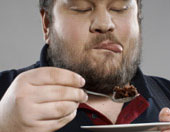 Tips for controlling sugar cravings
Tips for controlling sugar cravings